
If you are an animal lover and are not biased towards any specific kind, you must have considered keeping a dog and a cat both. But there is this conception that cats and dogs do not get along.
Some dog breeds do not mind tagging with other pets, but some breeds do not like sharing their space, especially with cats. This blog will illustrate the worst dog breeds for cats and more in detail.
Top 23 Dog Breeds Not to Get if You Have a Cat
Do dogs kill cats? The answer to this question is, “It depends”. The dog breeds mentioned here are not exactly cat killers but can pose a danger or threat in certain situations. Cats are typically more susceptible to danger around these dog breeds:
1. Yorkshire Terrier

Yorkshire Terriers are active dogs. But they are often too hyperactive, which can be a little stressful for other animals around. They also bark a lot and have a tendency to chase after small things that move, which include cats.
- Group: Toy Dog
- Height: 6 to 7 inches
- Weight: 2 to 7 pounds
- Energy Level: High
- Physical Characteristics: Compact toy size, silky coat, erect ears,
- Lifespan: 13 to 16 years
- Color: Blue-Tan, Black-Tan, Blue-Gold, Black-Gold
- Shedding: Low
- Bark: Highly Vocal
2. Miniature Pinscher

Miniature Pinschers are vocal and excited dogs. Their high level of excitement can create a stressful environment for other animals at home. Also, they have a tendency to chase smaller animals, such as cats.
- Group: Toy Dog
- Height: 9.8 to 11.8 inches
- Weight: 8.8 to 13.2 pounds
- Energy Level: High
- Physical Characteristics: Smooth, shiny coat, dark eyes, erect, high-set years, hackney gait, high stepping, docked tail, etc.
- Lifespan: 12 to 16 years
- Color: Stag Red, Chocolate-Rust, Black-Tan, Chocolate-Tan, Red, Black-Rust
- Shedding: Minimal
- Bark: High
3. Chow Chow

Chow chows are known to be a territorial breed. Also, they are protective of their owners. So, they can feel threatened if any other animal tries to be near their families or territories. Also, they can be aggressive towards other animals and children.
- Group: Non-Sporting Group
- Height: 17 to 20 inches
- Weight: 50 pounds to 75 pounds
- Energy Level: Medium
- Physical Characteristics: Compactly built, lion’s mane ruff around shoulders and neck, blue-black tongue, fluffy coat, small erect ears, etc.
- Shedding: High
- Bark: Minimal
- Lifespan: 9 to 15 years
- Color: Black, Blue, Fawn, Cream, Red
4. German Shepherd

German Shepherds are friendly and adorable. But they can be territorial and overprotective as well. Their strong instinct for protecting what’s theirs can make them dangerous to be around other animals.
- Group: Herding
- Height: 22 to 26 inches
- Weight: 50 to 90 pounds
- Energy Level: High
- Physical Characteristics: Muscular back, erect and large ears, bushy tail, thick and rough coat, deep chest, strong hindquarters, etc.
- Lifespan: 9 to 13 years
- Color: Black, Gray, Silver-Black, Sable, White, Red-Black, Black-Tan
- Shedding: Medium to Heavy
- Bark: Medium
5. Dachshund

Dachshunds are outgoing and friendly dogs. They are affectionate and protective of their owners. They also like to play around and chase smaller animals. This can create a stressful environment for cats to live in.
- Group: Hound
- Height: 8 to 9 inches
- Weight: 16 to 32 pounds
- Energy Level: Moderate
- Physical Characteristics: Long back, short legs, long muzzle, droopy and long ears, short shiny coat, etc.
- Lifespan: 12 to 16 years
- Color: Black, Cream, Red, Tan, Black-Tan, Chocolate-Cream, Blue-Tan, Black-Tan
- Shedding: Moderate
- Bark: Moderate to High
6. Schnauzer

Schnauzers are an energetic breed and are affectionate towards their owners. They are also very territorial and protective of their owners. This can make them not so welcoming to other animals.
- Group: Working
- Height: 17 to 19 inches
- Weight: 35 to 45 pounds
- Energy Level: Medium
- Physical Characteristics: Compact & square-built, sturdy, high-set folded ears, hard wiry coat, wooly undercoat, etc.
- Lifespan: 10 to 16 years
- Color: Pure Black, Pepper-Salt
- Shedding: Low
- Bark: High to Moderate
7. Border Collie

Border Collies are highly energetic and intelligent dogs. They make excellent working dogs, but they do not do well with other pets at home, especially cats. Due to their high prey drive, they are dangerous around cats and other smaller animals.
- Group: Herding
- Height: 21 to 22 inches
- Weight: 42 to 45 pounds
- Energy Level: High
- Physical Characteristics: Medium-sized, athletic build, rough or smooth double coat, short ears, straight bushy tail, etc.
- Lifespan: 10 to 17 years
- Color: Black, White, Blue, Lilac, Brindle, Liver, Gold, Red, Chocolate, Blue Merle, Red Merle, Sable Merle
- Shedding: Moderate
- Bark: High
8. Australian Shepherd

Australian Shepherds are known to be lively and amicable dogs. But, they also typically have an aggression towards other pets.
- Group: Herding
- Height: 18 to 23 inches
- Weight: 40 to 60 pounds
- Energy Level: High
- Physical Characteristics: Medium lush coat, keen deep eyes, short ears, bushy tail, etc.
- Lifespan: 13 to 15 years
- Color: Merle, Red, Black, Red Merle, Blue Merle, Black Tricolor, Red Tricolor
- Shedding: Moderate to Heavy
- Bark: Moderate
9. American Bulldog

American Bulldog, or English White Bulldog, is a large and strong breed. They have a strong prey drive, making them unsafe around any small animal, including cats.
- Group: Non-Sporting
- Height: 20 to 28 inches
- Weight: 60 to 130 pounds
- Energy Level: Medium
- Physical Characteristics: Muscular build, pink or black patches on nose and eye rims, short coat, narrow hindquarters, sculpted haunches, etc.
- Lifespan: 10 to 15 years
- Color: White, Fawn, Brindle, Brown, Red
- Shedding: Moderate
- Bark: Medium
10. Beagle

Beagles are known for their friendly and intelligent nature. Surprisingly, this adorable breed belongs to the hound group. Hence, these dogs can pose a threat to a cat living together. They can chase and tire them out if they do not kill the cat. This is not an ideal environment for a pet to be.
- Group: Hound
- Height: 13 to 15 inches
- Weight: 18 to 20 pounds
- Energy Level: High
- Physical Characteristics: Broad nose, smooth, dense coat, straight back, square muzzle, deep chest, droopy ears, straight tail, etc.
- Lifespan: 12 to 15 years
- Color: Tricolor, White-Tan, Red-White, Lemon-White, White-Tan, White-Chocolate, Orange-White
- Shedding: Moderate
- Bark: Low
11. Weimaraner

Weimaraners are large, brave, and playful breeds. They are known for their hunting instincts. This can be the reason they do not get along well with cats.
- Group: Sporting
- Height: 23 to 27 inches
- Weight: 55 to 90 pounds
- Energy Level: High
- Physical Characteristics: Sleek coat, high-set droopy ears, sturdy build, penetrative eyes, deep chest, etc.
- Lifespan: 11 to 14 years
- Color: Silver, Silver-Gray, Mouse-Gray
- Shedding: Moderate to High
- Bark: Low to Moderate
12. Afghan Hound

Afghan Hounds are known for their beautiful and majestic appearance. However, they belong to the sighthound group, which means they rely on their hearing and sighting instincts to prey. As cats are fast-moving and small, these hounds pose a significant threat to cats.
- Group: Hound
- Height: 25 to 27 inches
- Weight: 50 to 60 pounds
- Energy Level: High
- Physical Characteristics: Long, fine coat, majestic appearance, arched neck, large paws, pronounced hips, etc.
- Lifespan: 12 to 14 years
- Color: Black, Red, Cream
- Shedding: Low
- Bark: Low
13. Samoyed

There are a lot of fans of this fluffy, white, and playful breed. However, if you own a cat, you might need to be more cautious around them. Due to their herding and hunting nature, they are difficult to train. They can chase and kill a cat if not stopped.
- Group: Working
- Height: 19 to 23 inches
- Weight: 50 to 65 pounds
- Energy Level: High
- Physical Characteristics: Square and sturdy build, fluffy plumed tail, broad head, cropped straight ears, thick coat, etc.
- Lifespan: 12 to 14 years
- Color: Cream, White, White-Cream
- Shedding: Moderate to Heavy
- Bark: High
14. Schipperke

Schipperke belongs to the Spitz family and makes great guard dogs. This breed is playful and energetic. This dog breed is, however, not a threat to cats. But, they can pose a threat due to their mischievous nature and stress them out by chasing and barking at them.
- Group: Non-Sporting
- Height: 10 to 13 inches
- Weight: 12 to 16 pounds
- Energy Level: High
- Physical Characteristics: Pointed ears, fluffy soft outer coat, deep eyes, strong jaws and neck, etc.
- Lifespan: 13 to 15 years
- Color: Black, Cream, Blue, Apricot, Chocolate, Black-Tan
- Shedding: Light to Moderate
- Bark: High
15. Shih Tzu

Shih Tzu belongs to a non-hunting group of dogs, and they love attention. They get easily jealous if you pet another animal in front of them. And this jealousy can turn into aggression really quickly. So, it will be better not to divide your attention with a cat or any other animal except your Shih Tzu.
- Group: Toy Dog
- Height: 8 to 11 inches
- Weight: 9 to 16 pounds
- Energy Level: Moderate
- Physical Characteristics: Sturdy build, broad and rounded head, short muzzle, prominent eyes, curled up tail, etc.
- Lifespan: 10 to 16 years
- Color: Black, Brindle, White, Blue, Gold, Liver, Red, Silver
- Shedding: Low
- Bark: Low
16. Siberian Husky

Like many others on the list, the Siberian Husky is not a hunting dog. However, that doesn’t exclude them from being one of the worst dog breeds for cats. Huskies are intelligent and stubborn. That makes it difficult to train. Hence, having a cat around them is not advised, especially around an adult one.
- Group: Working
- Height: 20 to 23 inches
- Weight: 5 to 60 pounds
- Energy Level: High
- Physical Characteristics: Erect ears, brown or blue eyes or of both colors, straight neck, bushy tail, etc.
- Lifespan: 12 to 15 years
- Color: White, Black, Gray, Gray-White, Red-White, Black-Tan, Silver-Gray, Sable-White, Black-White
- Shedding: Moderate to Low
- Bark: Low
17. Greyhound

Greyhounds are protective and loving to their family. However, that affection doesn’t extend to other animals in the household.
- Group: Hound
- Height: 26 to 30 inches
- Weight: 65 to 70 pounds
- Energy Level: Low
- Physical Characteristics: Long neck, narrow head, deep chest, muscular hindquarters, long tail, high-set ears, short and smooth coat, etc.
- Lifespan: 10 to 14 years
- Color: Black, Red, Fawn, White, Blue, Brindle
- Shedding: Light to Moderate
- Bark: High
18. Whippet

Whippets are gentle and playful dogs. However, they are also territorial and protective. They make great pet dogs but are unsafe to be around cats, especially outdoors.
- Group: Hound
- Height: 19 to 21 inches
- Weight: 20 to 40 pounds
- Energy Level: High
- Physical Characteristics: Long and slender legs, deep chest, tucked up abdomen, muscular build, long tail, large eyes, etc.
- Lifespan: 12 to 15 years
- Color: Black, Cream, Blue, Dun, Orange, Fawn, Red, Silver, White, Tan
- Shedding: Low
- Bark: Low
19. Great Dane

Great Danes are energetic, large, and playful. They are known to be aggressive towards other animals. Hence, it is threatening to keep cats around them.
- Group: Working
- Height: 30 to 32 inches
- Weight: 100 to 120 pounds
- Energy Level: Low
- Physical Characteristics: Flat and massive head, erect and cropped or droopy ears, sleek and muscular build, etc.
- Lifespan: 8 to 10 years
- Color: Black, Fawn, Blue, Harlequin, Brindle, Mantle, Merle
- Shedding: Moderate to High
- Bark: Medium
20. Rottweiler

Rottweilers are known to be guard dogs. They are massive, strong, and protective. They have a strong prey drive and cannot be trusted around small animals such as cats. Also, they get easily jealous.
- Group: Working
- Height: 22 to 27 inches
- Weight: 77 to 132 pounds
- Energy Level: High
- Physical Characteristics: Muscular build, massive head, square and strong muzzle, hanging ears, short, dense, and harsh coat, etc.
- Lifespan: 8 to 10 years
- Color: Black, Tan, Mahogany
- Shedding: Low to Moderate
- Bark: High to Moderate
21. Bullmastiff

Bullmastiffs are large, protective, and territorial. Hence, they can be a threat to cats. Also, they are fond of chasing cats due to their natural prey instincts. However, if they were raised together since they were young, they can make great companions.
- Group: Working
- Height: 24 to 27 inches
- Weight: 100 to 130 pounds
- Energy Level: Low
- Physical Characteristics: Large and square body, short coat, sloping hindquarters, sturdy and wide legs, etc.
- Lifespan: 8 to 10 years
- Color: Red, Brindle, Fawn
- Shedding: Moderate
- Bark: Low
22. Dalmatian

Dalmatians are full of energy, and they tend to be aggressive towards other animals, including cats. But, if introduced at a young age and trained properly to socialize, they might make an exception.
- Group: Non-Sporting
- Height: 22 to 23 inches
- Weight: 45 to 60 pounds
- Energy Level: High
- Physical Characteristics: Sleek, muscular, and medium-sized body, short and dense coat, long tail, hanging ears, etc.
- Lifespan: 10 to 13 years
- Color: Black Spotted, Lemon, Liver, Trindle/Tricolor, Sable, Brindle, Blue, Orange. Mosaic, Double-Tone
- Shedding: Heavy
- Bark: Low
Takeaway
In this blog, almost all the worst dog breeds for cats. Generally, all the hounds and terriers come tend to be aggressive towards cats, except a few. If you already own a cat, it is recommended to avoid these breeds entirely. However, through early socialization a kitten and a puppy can get along well. Still, there is a chance of their basic instincts kicking in, and the large breeds can cause harm to the cat without it being intentional. Also, you have over 100 breeds to pick from, even if you leave these 23 out.
Frequently Asked Questions
Which dog breeds are known to have conflicts with cats?
Saluki, Schipperke, Smooth Fox Terrier, Whippet, Australian Cattle Dog, and Bluetick Coonhound are some of the breeds known to have conflicts with cats.
Are Huskies good with cats?
If a husky puppy and a cat grow up together, they might get along well as the husky will consider the cat to be a part of his pack. However, it is not easy for adult huskies to get along with cats.
Do Dalmatians and cats get along?
Dalmatians should be well-socialized from an early age to get along with cats and any other pets.
Are Terriers safe to have around cats?
Terriers are not really compatible with cats. However, you can count on the Boston Terrier, who is an exception to this stereotype.
Can Boxers and Cats get along well?
Boxers chase any small animals, even cats, out of their canine instincts. But, if they are socialized and trained properly, they can get along well with other animals, even cats.
Do German Shepherds get along with cats?
Yes, German Shepherds can get along with cats, but only with proper training and socialization.
1 comment
Latest Review on Woof Blankets
To have such a masterpiece by my side every day is a gift for me and my memories with Rex. Thank you WoofBlankets for such an opportunity to recreate his image on a blanket.Lara o’ Miguel US, California
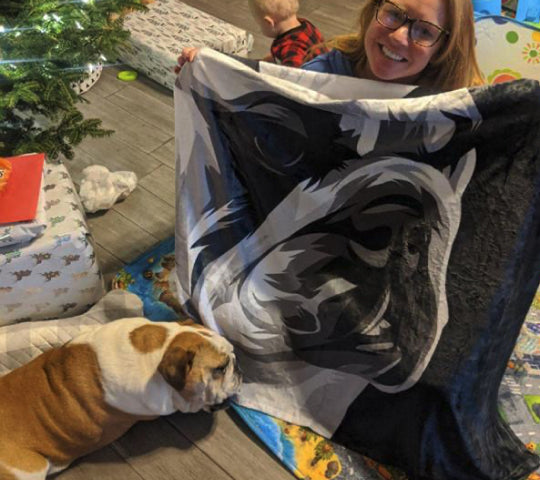
COLLECTION WORTH EVERY PENNY
BEST SELLERS
-
Woofy Single Color Custom Pet Blanket
![Woofy Single Custom Pet Blanket – Woof Blanket]()
- -41%
BlanketsSHOP NOW- Regular price
- from $64.95
- Sale price
- from $64.95
- Regular price
-
$109.95 - Unit price
- per
Sold out -
Exclusive Christmas Custom Pet Blanket
![Exclusive Custom Pet Blanket]()
- -39%
BlanketsSHOP NOW- Regular price
- from $69.95
- Sale price
- from $69.95
- Regular price
-
$114.95 - Unit price
- per
Sold out -
Christmas Custom Pet Blanket
![Christmas Custom Pet Blanket - Custom Dog Blankets]()
- -40%
BlanketsSHOP NOW- Regular price
- from $69.95
- Sale price
- from $69.95
- Regular price
-
$115.95 - Unit price
- per
Sold out -
Watercolor Pet Portraits
![]() SHOP NOW
SHOP NOW- Regular price
- from $59.95
- Sale price
- from $59.95
- Regular price
-
- Unit price
- per
Sold out -
Woofy Christmas Custom Dog Blanket
![Woofy Christmas Custom Dog Blanket]()
- -39%
BlanketsSHOP NOW- Regular price
- from $69.95
- Sale price
- from $69.95
- Regular price
-
$114.95 - Unit price
- per
Sold out -
Modern Pet Owner Portrait
![]()
- -32%
CanvasSHOP NOW- Regular price
- from $84.95
- Sale price
- from $84.95
- Regular price
-
$124.95 - Unit price
- per
Sold out -
Woof Splash Custom Pet Blanket
![Woof Splash Custom Pet Blanket]()
- -39%
BlanketsSHOP NOW- Regular price
- from $69.95
- Sale price
- from $69.95
- Regular price
-
$114.95 - Unit price
- per
Sold out -
The Admiral - Custom Pet Portrait
![The Admiral - Custom Pet Portrait Online]()
- NEW
- -25%
CanvasSHOP NOW- Regular price
- from $59.95
- Sale price
- from $59.95
- Regular price
-
$79.95 - Unit price
- per
Sold out -
Wings of Loyalty - Custom Pet Portrait
![]()
- NEW
CanvasSHOP NOW- Regular price
- from $59.95
- Sale price
- from $59.95
- Regular price
-
- Unit price
- per
Sold out -
Pet Memorial Custom Photo Collage Blanket
![Personalized pet memorial quilt with photos]()
- -41%
BlanketsSHOP NOW- Regular price
- from $64.95
- Sale price
- from $64.95
- Regular price
-
$109.95 - Unit price
- per
Sold out -
Celestial Paws - Custom Pet Portrait
![]() CanvasSHOP NOW
CanvasSHOP NOW- Regular price
- from $59.95
- Sale price
- from $59.95
- Regular price
-
- Unit price
- per
Sold out -
The Loyal Soul - Custom Pet Portrait
![]()
- NEW
SHOP NOW- Regular price
- from $59.95
- Sale price
- from $59.95
- Regular price
-
- Unit price
- per
Sold out -
Cartoonized Pet Portraits (New)
![Cartoonized Pet Custom Portraits Online]()
- -36%
SHOP NOW- Regular price
- from $59.95
- Sale price
- from $59.95
- Regular price
-
$93.95 - Unit price
- per
Sold out -
The French Sailor - Custom Pet Portrait
![]()
- -25%
CanvasSHOP NOW- Regular price
- from $59.95
- Sale price
- from $59.95
- Regular price
-
$79.95 - Unit price
- per
Sold out -
The Policeman - Custom Pet Portrait
![]()
- NEW
- -25%
CanvasSHOP NOW- Regular price
- from $59.95
- Sale price
- from $59.95
- Regular price
-
$79.95 - Unit price
- per
Sold out -
The General - Custom Pet Portrait
![]()
- NEW
- -25%
CanvasSHOP NOW- Regular price
- from $59.95
- Sale price
- from $59.95
- Regular price
-
$79.95 - Unit price
- per
Sold out -
Woof Love Custom Pet Blanket
![Woof Love Custom Pet Blanket]()
- -39%
BlanketsSHOP NOW- Regular price
- from $69.95
- Sale price
- from $69.95
- Regular price
-
$114.95 - Unit price
- per
Sold out -
Summer Time Custom Pet Blanket
![Summer Time Custom Pet Blanket]()
- -39%
BlanketsSHOP NOW- Regular price
- from $69.95
- Sale price
- from $69.95
- Regular price
-
$114.95 - Unit price
- per
Sold out -
The Ambassador - Custom Pet Portrait
![The Ambassador - Custom Pet Portrait Online]()
- NEW
- -25%
CanvasSHOP NOW- Regular price
- from $59.95
- Sale price
- from $59.95
- Regular price
-
$79.95 - Unit price
- per
Sold out -
Fall In Love Custom Pet Blanket
![Fall In Love Custom Dog Blanket]()
- NEW
- -39%
BlanketsSHOP NOW- Regular price
- from $69.95
- Sale price
- from $69.95
- Regular price
-
$114.95 - Unit price
- per
Sold out -
The Classy Lady - Custom Pet Portrait
![The Classy Lady]()
- NEW
- -25%
CanvasSHOP NOW- Regular price
- from $59.95
- Sale price
- from $59.95
- Regular price
-
$79.95 - Unit price
- per
Sold out -
The Duke - Custom Pet Portrait
![The Duke - Custom Pet Portrait]()
- NEW
- -25%
CanvasSHOP NOW- Regular price
- from $59.95
- Sale price
- from $59.95
- Regular price
-
$79.95 - Unit price
- per
Sold out -
Dog In Suit- Custom Pet Portrait
![Dash Dog In Suit- Custom Pet Portrait Online]()
- NEW
- -25%
CanvasSHOP NOW- Regular price
- from $59.95
- Sale price
- from $59.95
- Regular price
-
$79.95 - Unit price
- per
Sold out -
The Princess - Custom Pet Portrait
![]()
- NEW
- -25%
CanvasSHOP NOW- Regular price
- from $59.95
- Sale price
- from $59.95
- Regular price
-
$79.95 - Unit price
- per
Sold out -
Modern Pet Portrait with One Mug
![Modern Pet Portrait with One Mug]()
- -25%
Print MaterialSHOP NOW- Regular price
- from $99.95
- Sale price
- from $99.95
- Regular price
-
$133.95 - Unit price
- per
Sold out -
The Aristocrat - Custom Pet Portrait
![The Aristocrat - Custom Pet Portrait At Best Price]()
- NEW
- -25%
CanvasSHOP NOW- Regular price
- from $59.95
- Sale price
- from $59.95
- Regular price
-
$79.95 - Unit price
- per
Sold out -
Single Color Custom Blanket with 1 Mug
![Single Color Custom Blanket with 1 Mug]() BlanketsSHOP NOW
BlanketsSHOP NOW- Regular price
- from $99.95
- Sale price
- from $99.95
- Regular price
-
- Unit price
- per
Sold out -
Single Color Custom Blanket with 2 Pillows
![Single Color Custom Pet Blanket with 2 Pillows]()
- -21%
BlanketsSHOP NOW- Regular price
- from $99.95
- Sale price
- from $99.95
- Regular price
-
$125.95 - Unit price
- per
Sold out -
The Dog in Suit Custom Pet Mug
![]()
- -20%
MugsSHOP NOW- Regular price
- $39.95
- Sale price
- $39.95
- Regular price
-
$49.95 - Unit price
- per
Sold out -
Angel Custom Pet Mug
![]()
- -20%
MugsSHOP NOW- Regular price
- $39.95
- Sale price
- $39.95
- Regular price
-
$49.95 - Unit price
- per
Sold out -
This Human Belongs To - Custom Pet Mug
![]()
- NEW
- -20%
MugsSHOP NOW- Regular price
- $39.95
- Sale price
- $39.95
- Regular price
-
$49.95 - Unit price
- per
Sold out -
It's Not Dog Hair Custom Pet Mug
![]()
- NEW
- -20%
MugsSHOP NOW- Regular price
- $39.95
- Sale price
- $39.95
- Regular price
-
$49.95 - Unit price
- per
Sold out -
My Dog Is My Valentine Custom Pet Mug
![]()
- NEW
- -20%
MugsSHOP NOW- Regular price
- $39.95
- Sale price
- $39.95
- Regular price
-
$49.95 - Unit price
- per
Sold out -
3 Photos With Message Custom Pet Mug
![]()
- NEW
- -20%
MugsSHOP NOW- Regular price
- $39.95
- Sale price
- $39.95
- Regular price
-
$49.95 - Unit price
- per
Sold out -
My Valentine Has Four Legs- Personalized Mugs
![]()
- NEW
- -20%
MugsSHOP NOW- Regular price
- $39.95
- Sale price
- $39.95
- Regular price
-
$49.95 - Unit price
- per
Sold out -
Dog Mamma Custom Pet Coffee Mug
![]()
- -20%
MugsSHOP NOW- Regular price
- $39.95
- Sale price
- $39.95
- Regular price
-
$49.95 - Unit price
- per
Sold out -
Uncle Sam - Custom Pet Portrait
![]()
- NEW
- -25%
CanvasSHOP NOW- Regular price
- from $59.95
- Sale price
- from $59.95
- Regular price
-
$79.95 - Unit price
- per
Sold out -
The Revolutionary Emperor - Custom Pet Portrait
![]()
- NEW
- -25%
CanvasSHOP NOW- Regular price
- from $59.95
- Sale price
- from $59.95
- Regular price
-
$79.95 - Unit price
- per
Sold out -
The Princess Paws - Custom Pet Portrait
![]()
- -25%
CanvasSHOP NOW- Regular price
- from $59.95
- Sale price
- from $59.95
- Regular price
-
$79.95 - Unit price
- per
Sold out -
The Dark Crusader Knight - Custom Pet Portrait
![]()
- -25%
CanvasSHOP NOW- Regular price
- from $59.95
- Sale price
- from $59.95
- Regular price
-
$79.95 - Unit price
- per
Sold out
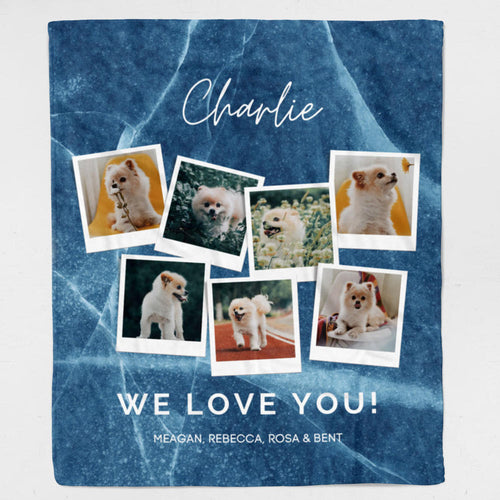
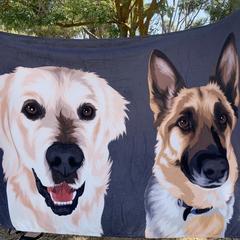
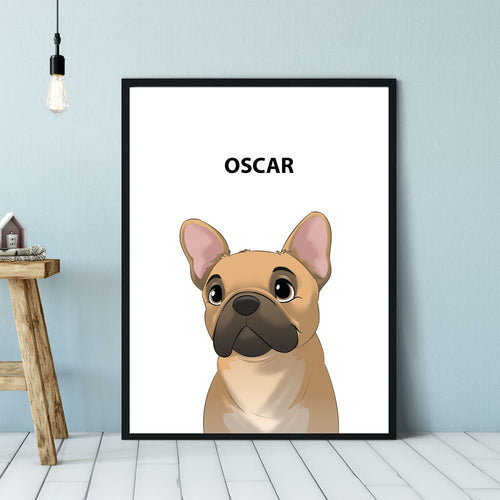
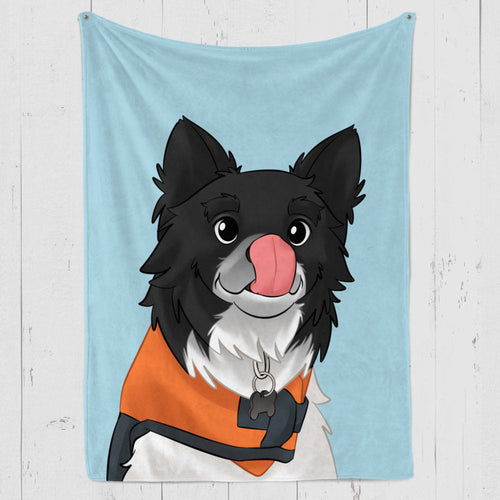
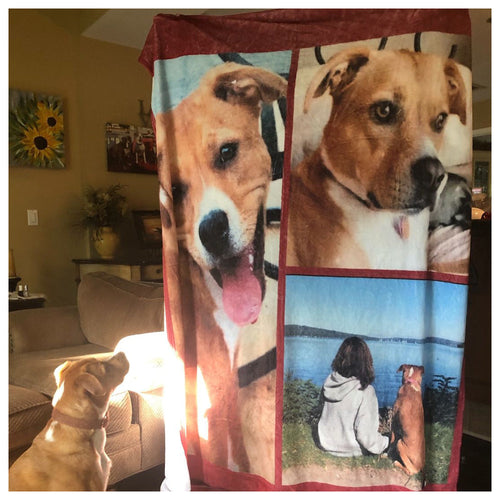
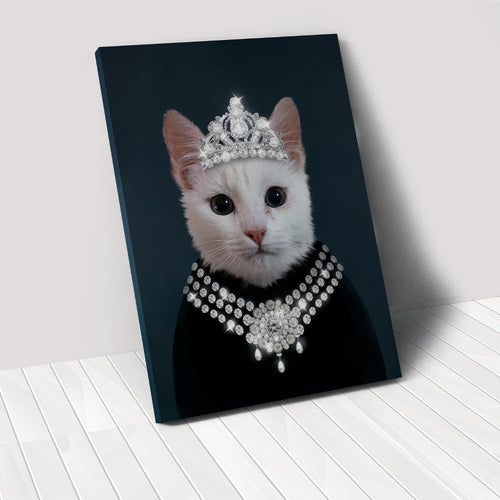
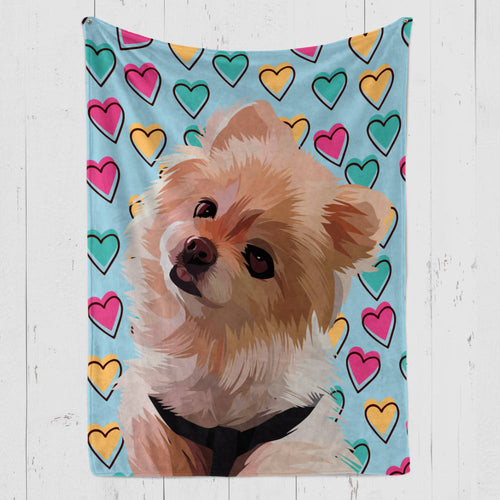
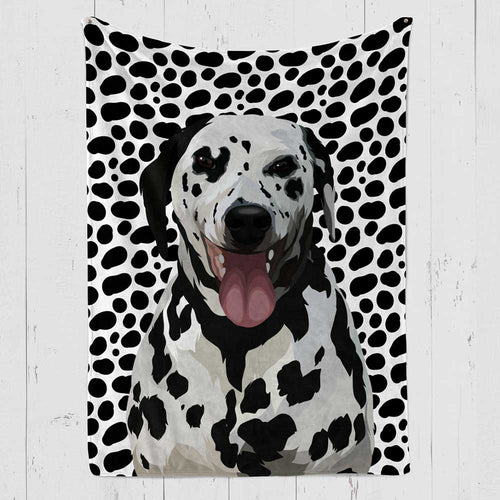
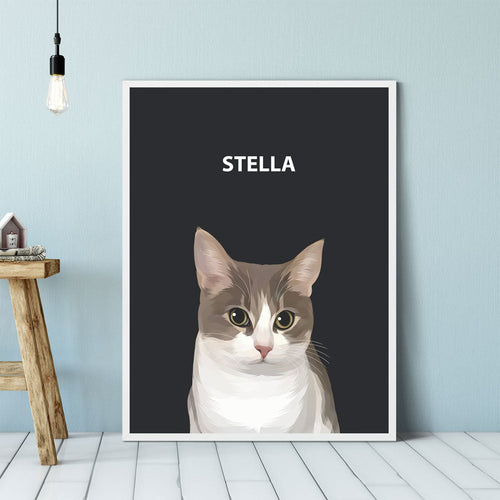
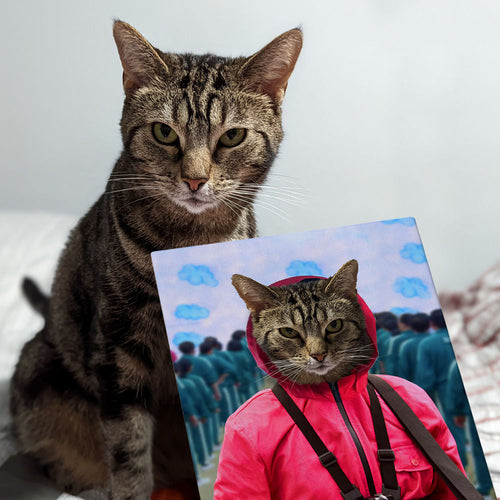
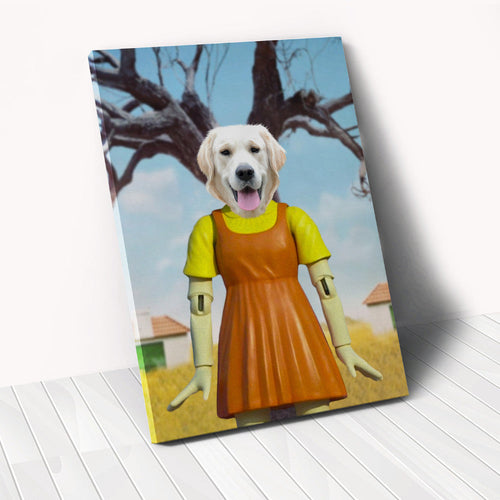
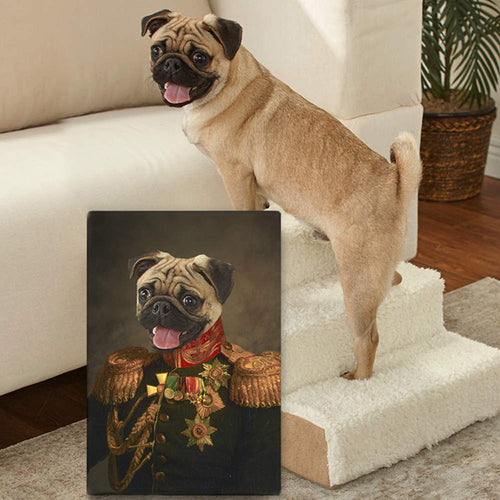
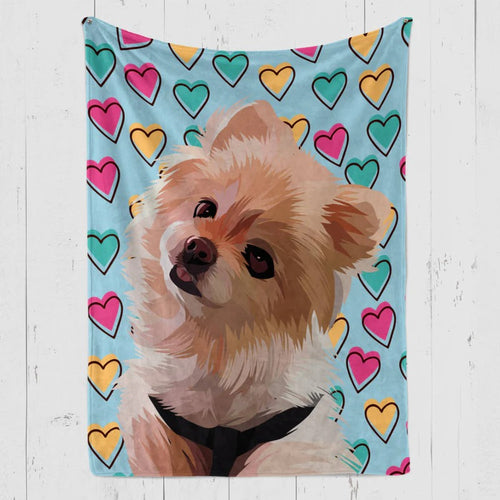
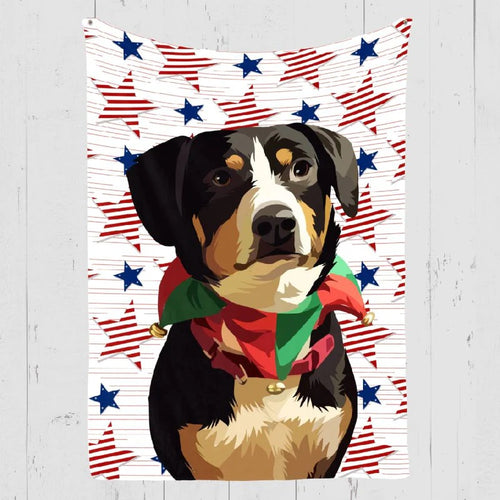
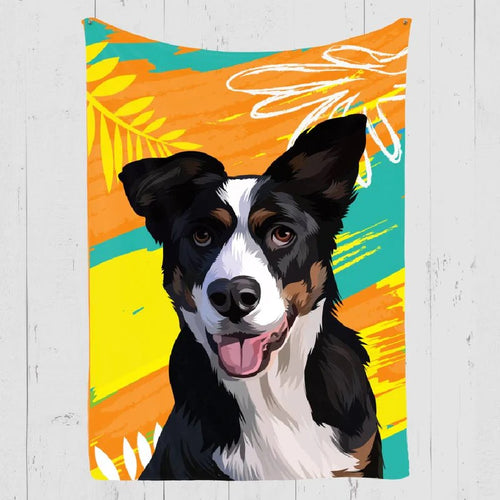
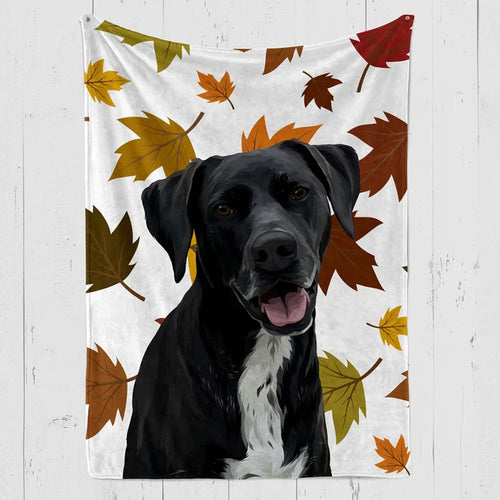
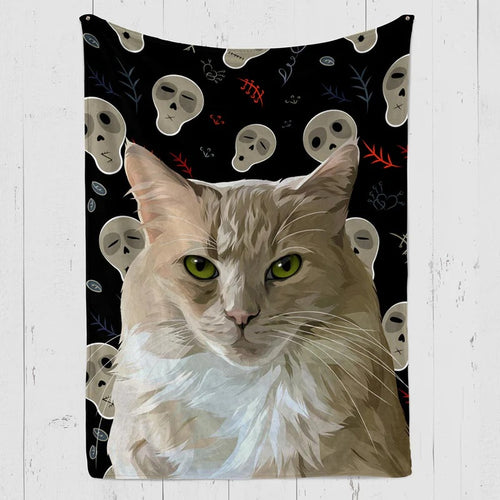
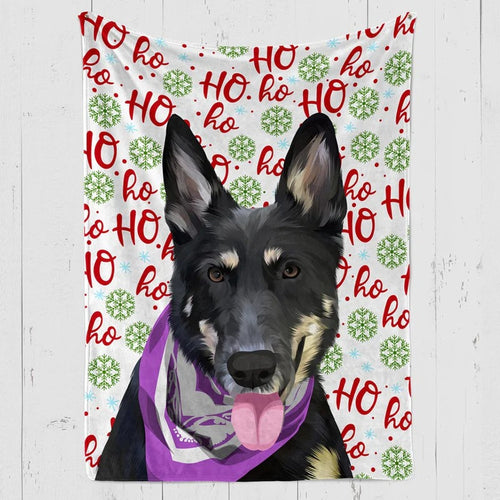














































A lot of these dogs r cute and small, making me confused on how they could harm any cat. Maybe they use their cuteness as a weapon!? LOL!!😂